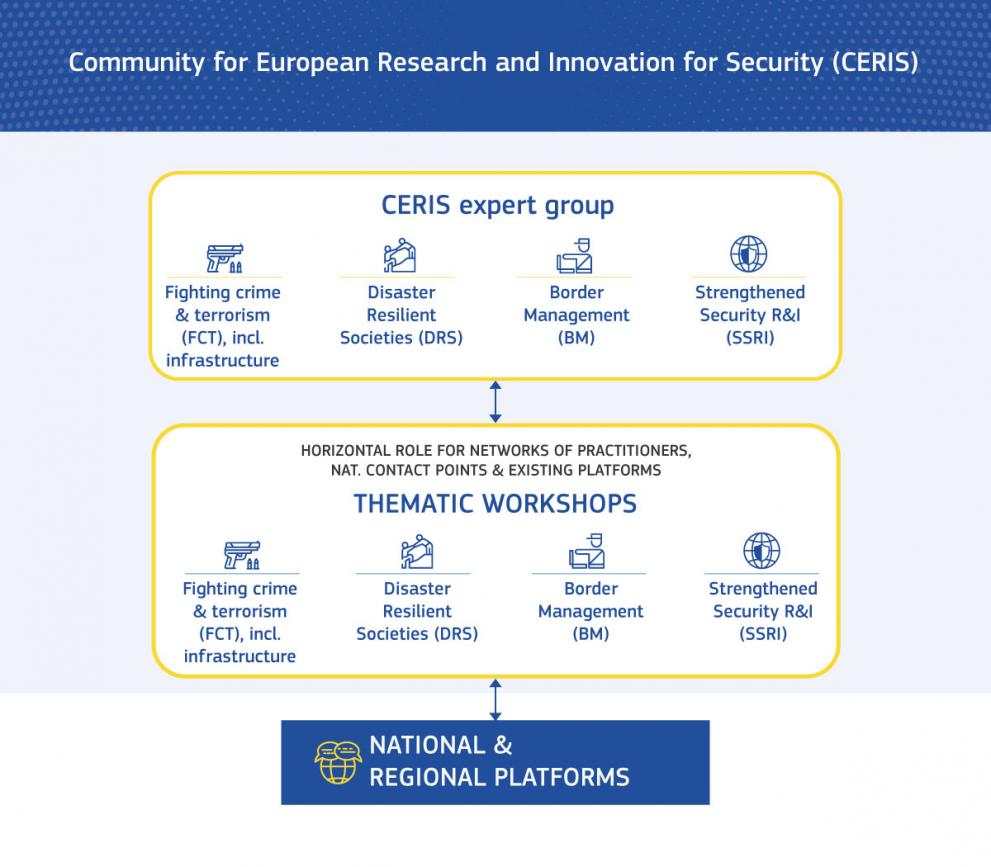In order to meet CERIS’ objectives, links and interactions with existing networks are essential, in particular to discuss/assess requirements of security practitioners, capability gaps, opportunities brought about by technology and, as a consequence, research needs. In this respect, interactions are established with the following networks:
EU-funded networks
Building on the work of the Networks of Practitioners set up under Horizon 2020, the Commission facilitates the creation of Knowledge Networks for Security R&I by means of Horizon Europe funding (under the SSRI Thematic Area) and establishes bridges with existing Knowledge Networks (e.g. developed by policy DGs). The role of these networks is to collect, aggregate, process, disseminate and make the most of existing knowledge and thus contribute directly to the work of CERIS, including the drafting of CERIS reports, e.g. provide input on matters such as
- capability needs and gaps in the different Thematic Areas
- state-of-the-art technologies, techniques, methods and tools to help fill capability gaps
- outcomes (including on technological, industrial, legal and ethical issues), future trends, lessons learnt and best practices derived from past and current security research initiatives
- opportunities and constraints for the exploitation of EU security research and innovation projects in response to common capability gaps
- areas requiring standardised solutions and/or certification schemes to foster innovation uptake and market creation and the implementation of such schemes
Existing networks and national/regional fora
Platforms and networks relaying information to and from CERIS discussions are essential to ensure the alignment between the EU and national and regional levels regarding the definition and prioritisation of research needs. These platforms will not be under the direct responsibility of the Commission but are associated to the activities of CERIS whenever possible. These include the national ‘Communities of Users’ or existing networks representing different sectors, for example.


